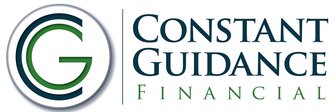The Theory of Reflectivity
I wrote last week that my hope was that markets would become more stable and recent gains were consolidated, but something told me that the year 2020 still had a few more surprises for us. It wasn’t a surprise that it only took a week to be surprised. All of the large gains from the prior week were lost this week.
There is a powerful feedback loop in markets that can become “self-reinforced” even if it does not reflect economic reality. This theory was introduced to the market by George Soros in an investment book titled, The Alchemy of Finance. According to Soros’ concept of reflexivity, “financial markets can create inaccurate expectations and then change reality to accord with them. This theory of reflexivity could help explain the underlying force that took the NASDAQ to an all-time high before the correction this week.
The theory of reflectivity was put on display this week when the new hot investing trend became speculating in bankrupt companies. Hertz, Whiting Petroleum, Pier 1 and J.C. Penney, which all declared bankruptcy amid the pandemic, saw their shares surging at least 70% on Monday’s trading alone, some of which more than doubled. Chesapeake Energy went up over 400%! Hertz ended up going up an insane 800%. The low for the week was .40 cents and high was $5.50 and it ended at $2.59. In bankruptcy, Hertz has a $19 billion mountain of debt that will need to be paid before there is any money left for common shareholders. It even received a delisting notice from the New York Exchange. This didn’t stop investors from speculating. This move ranks up there when oil prices went negative $20 a barrel. Hertz is now trying to issue $1 billion in new shares at a $3 stock price. This money could help save the company from bankruptcy! In the end, the bankruptcy filing could ultimately save the company from bankruptcy. There is an army of small retail investors trying to get rich off penny stocks and they are actually able to change reality even though their expectations make no sense. I’ve written a few times since this economic crisis began, the textbooks are not getting this one right. Many investors are not focused on financial statements and are speculating on investments where they can make or lose 100% in a day. For example, the daily return volatility of cruise lines and airlines stocks is now over +/-10%.
The first shock of bankrupt companies doubling took markets to all-time highs and the second surprise caused the largest market drop since March. Chairman Powell of the Fed said that, “It’s a long road. It is going to take some time…..Twenty-two, 24 million people – somehow as a country we have to get them back to work, they did not do anything wrong. This was a natural disaster.” We all agree with this statement, but the surprise was keeping rates at 0% through 2022. At the time of this statement, the NASDAQ was at an all-time high and investors were thinking the recovery would be early next year. I was also in this camp. President Trump blasted the Federal Reserve on Twitter Thursday after this grim outlook on U.S. recovery that took down the Dow by more than 7%. “The Federal Reserve is wrong so often,” Trump tweeted, “We can use our tools to support the labor market and the economy and we can use them until we fully recover.” This might be the one instance in 4 years that Democrats and Republicans can all agree with a Trump tweet. It’s much better to give investors some return on their money. The Fed is always quick to bail out lenders, but maybe this time they should be paying more for borrowing money given the higher risk to invest money.
You need this “animal spirits” alive to get this recovery rolling. Animal spirits was a term coined by the famous British economist, John Maynard Keynes, to describe how people arrive at financial decisions, including buying and selling securities, in times of economic stress or uncertainty. I believe it’s great that some investors are willing to buy bankrupt companies in the hope of getting rich. They might end up saving a few jobs at Hertz and buy the company some time to get through this pandemic without declaring bankruptcy. However, Hertz and all the other companies financial statements in bankruptcy do not support their valuation, but there is something to this theory of reflectivity. On Friday, American Airlines reported a 90% slump in revenue. Their expect daily cash burn rate to slow to about $40 million in June, and said it plans to fly 55% of its domestic schedule and nearly 20% of its international schedule in July. This “good” news was the reason why the stock went up 15%! Imagine if they reported a 100% drop in revenue. The stock might have went up 20%. 🙂
I immediately texted a friend when the Fed made their interest rate decision. I knew markets were in trouble when they dampened animal spirits with this negative economic outlook. I didn’t know that it would cause an almost 20% correction in banks and 10-15% drop in most other blue chip companies. By now we all know how bad the economy is and that this virus is not going to disappear anytime soon. In fact, the curves are still rising in some states in the south and west. In the months ahead, investors will continue to need more positive reinforcement and the power of reflectivity working its magic in financial markets even if some of the short-term predictions seem wildly inaccurate.
